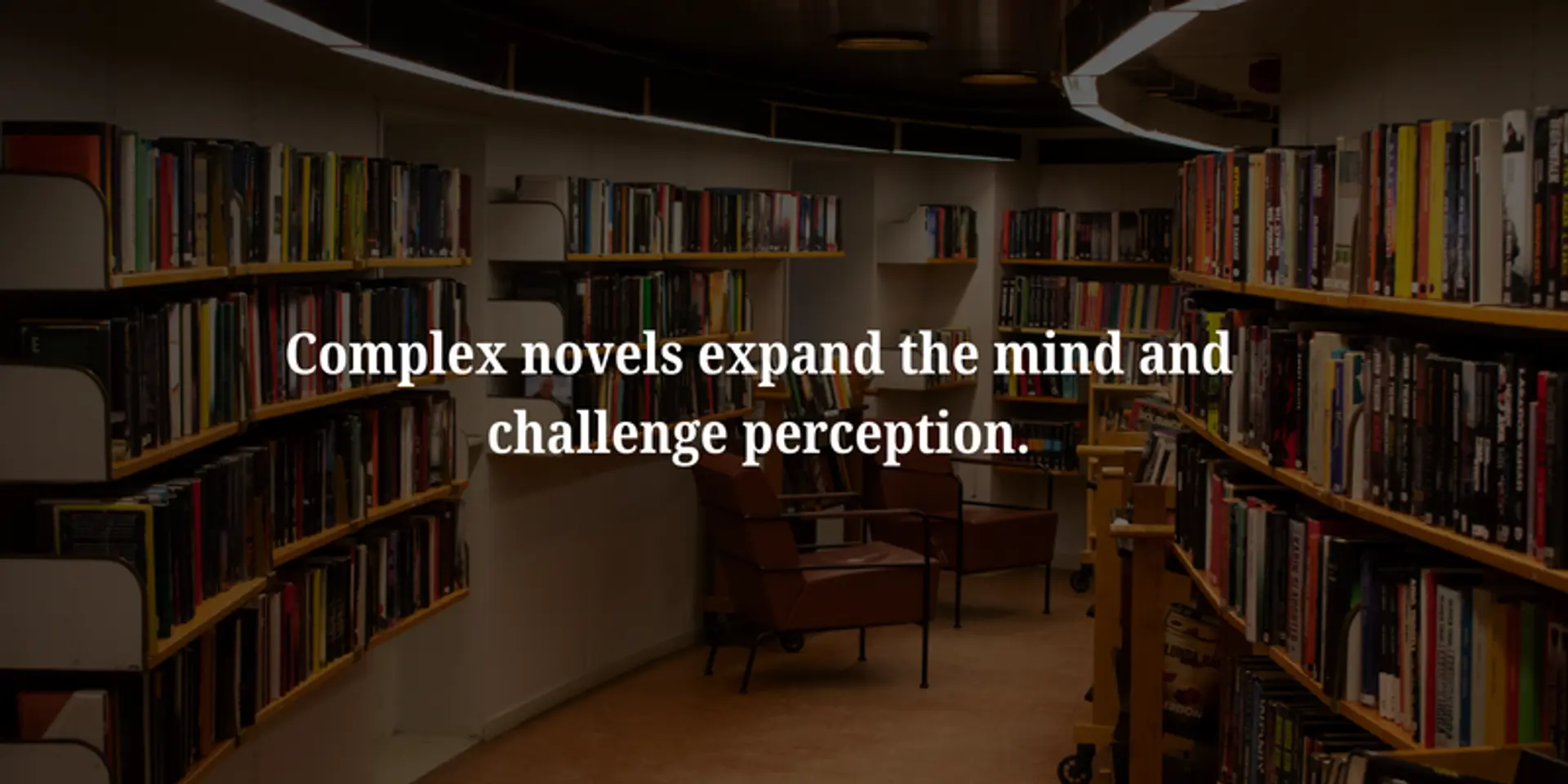7 intellectually demanding novels worth the effort
Explore seven complex novels that push the boundaries of storytelling and challenge your mind with deep themes, intricate plots, and profound insights.
Some books entertain, some inform, and then there are those rare novels that challenge our perceptions, demand deep thinking, and leave us with a transformed understanding of life, society, and even our consciousness. These are the books that defy easy classification, that require effort but reward us with profound insights.
Complex novels often have intricate narratives, philosophical undertones, or unconventional storytelling techniques. They may force readers to question reality, morality, and human nature itself. If you're someone who enjoys literature that requires reflection and intellectual engagement, these seven novels are perfect for you. Each of them offers a unique way to unlock a higher level of understanding—whether through dense philosophical discussions, multi-layered narratives, or mind-bending structures.
7 complex novels that captivate and challenge readers
1. Infinite Jest by David Foster Wallace
David Foster Wallace’s Infinite Jest is a labyrinthine novel that explores themes of addiction, entertainment culture, and existential despair. Set in a near-future North America, the novel interweaves the lives of characters at a tennis academy and a rehabilitation centre, all connected by a mysterious film so addictive that it renders viewers incapable of doing anything else. Wallace’s prose is dense, filled with long, intricate sentences, extensive footnotes, and layers of irony.
Why it’s complex:
- Non-linear storytelling with multiple plotlines.
- Footnotes and endnotes create an immersive but demanding reading experience.
- Deep exploration of addiction, entertainment, and the search for meaning.
Readers willing to immerse themselves in its complexity will find a novel that questions what it means to seek pleasure, purpose, and escape in modern life.
2. House of Leaves by Mark Z. Danielewski
House of Leaves is not just a novel; it’s an experience. Told through multiple perspectives—including a blind man’s scholarly analysis of a fictional documentary and a tattoo artist’s chaotic annotations—this book plays with typography, fragmented storytelling, and metafiction. The novel’s core story revolves around a house that is bigger on the inside than it appears on the outside, symbolising psychological depths and existential horror.
Why it’s complex:
- An unconventional narrative structure with multiple layers of text and footnotes.
- A story within a story that defies traditional formatting.
- Psychological horror blended with existential philosophy.
It’s a novel that demands active reading, making you question not just the story but the nature of reality itself.
3. Gravity’s Rainbow by Thomas Pynchon
Often considered one of the most difficult books in modern literature, Gravity’s Rainbow is a sprawling, surreal exploration of World War II, technology, paranoia, and power. Pynchon’s narrative blends real historical events with absurd, darkly comedic, and often bewildering digressions.
Why it’s complex:
- A vast cast of characters and interwoven storylines.
- Heavy use of scientific, historical, and literary references.
- A surreal, often chaotic narrative style.
The novel requires careful attention to its nonlinear structure and deep thematic layers, making it a rewarding but demanding read.
4. The Recognitions by William Gaddis
Regarded as a predecessor to Infinite Jest, The Recognitions is a massive novel that follows the story of a forger in the art world, exploring themes of authenticity, truth, and artistic integrity. Gaddis’ writing style is intense, filled with long, complex sentences and abrupt shifts in dialogue and narration.
Why it’s complex:
- Dense, stream-of-consciousness prose.
- Heavy philosophical and theological discussions.
- Satirical critique of art, authenticity, and society.
It’s a novel that questions the very nature of creativity and whether anything we perceive as real is truly authentic.
5. 2666 by Roberto Bolaño
2666 is a novel that resists easy categorisation. It is structured in five parts, each focusing on different characters and locations but ultimately tying into the central theme of violence, particularly in the Mexican border town of Santa Teresa. Bolaño’s writing is haunting, dense, and filled with unexpected shifts in perspective.
Why it’s complex:
- Five interconnected yet seemingly unrelated sections.
- A mix of historical, literary, and philosophical elements.
- A dark and unsettling exploration of violence and human cruelty.
A novel that challenges conventional storytelling, 2666 forces readers to confront the darker aspects of humanity.
6. Godel, Escher, Bach: An Eternal Golden Braid by Douglas Hofstadter
While not a traditional novel, Godel, Escher, Bach is a literary and intellectual masterpiece that explores the deep connections between logic, mathematics, art, and human thought. Hofstadter uses dialogues, puzzles, and narrative experiments to illustrate complex ideas about consciousness and meaning.
Why it’s complex:
- A fusion of mathematics, art, and music with philosophy.
- Recursive storytelling and self-referential structures.
- Explores the concept of consciousness and self-reference.
This is a book that stretches the boundaries of both fiction and non-fiction, challenging the way we perceive intelligence and creativity.
7. The Book of the New Sun by Gene Wolfe
Gene Wolfe’s The Book of the New Sun is a unique blend of science fiction and fantasy that follows Severian, a torturer exiled from his guild, as he journeys through a dying Earth-like world. The narrative is filled with cryptic clues, hidden meanings, and a storytelling style that demands rereading to fully grasp its depth.
Why it’s complex:
- A richly detailed, immersive world that requires careful attention.
- A deeply unreliable narrator.
- Themes of memory, identity, and time.
Wolfe’s prose is poetic, intricate, and layered with mythological and philosophical elements, making it one of the most rewarding but challenging reads in speculative fiction.
Conclusion
Reading complex novels isn’t just about intellectual challenge—it’s about expanding your mind and seeing the world from new perspectives. These seven books push the limits of storytelling, language, and philosophy, offering a reading experience that goes beyond entertainment.
If you’re ready to embark on a literary journey that demands deep thought and patience but offers profound rewards, pick up one of these novels and prepare to unlock a higher understanding of literature and life.







